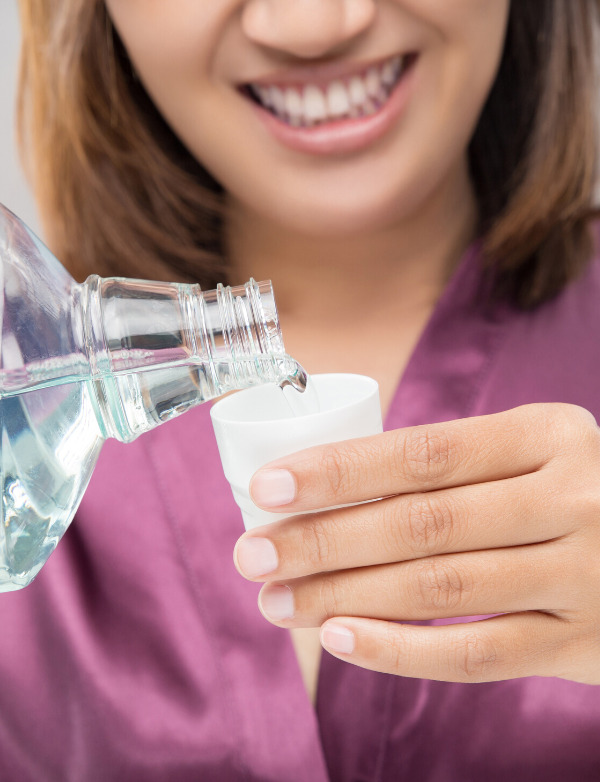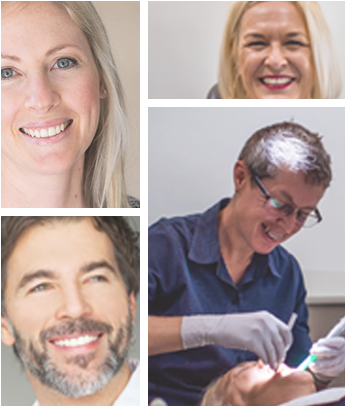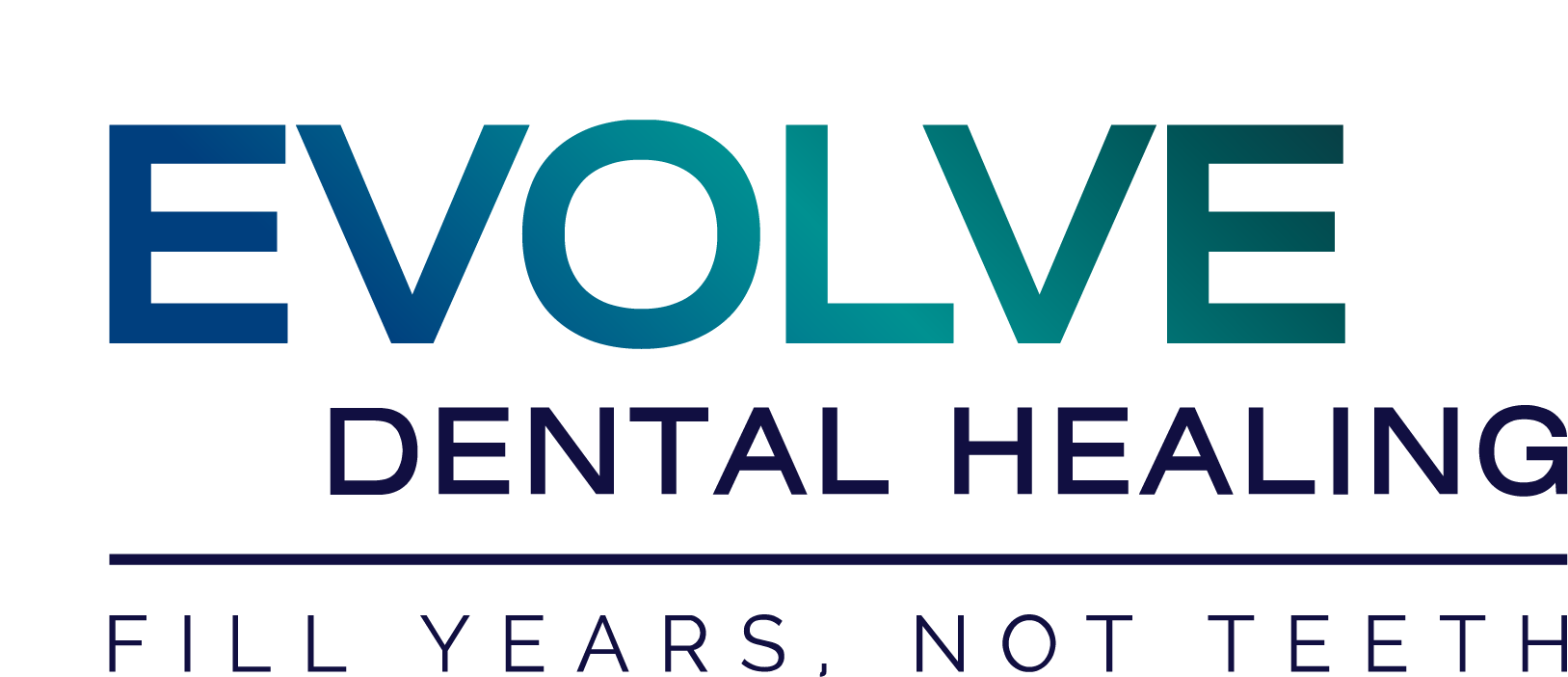The Oral Microbiome and How To Keep It Healthy

The oral microbiome is the mix of bacteria that naturally occur in our mouth. You may be aware that bacteria are linked to tooth decay and gum disease and play a role in dental health but did you know that keeping your oral microbiome healthy helps to prevent cavities and dental issues?
What Is The Oral Microbiome?
The mouth (aka the oral cavity) is considered to be a major gateway to the rest of the body. The state and health of the oral microbiome are representative of what’s happening elsewhere in the body. It’s believed there are between 300 and 700 different microbial species living in the average human’s mouth. The oral microbiome is the second largest microbial community in humans second to the gut, which is often simply called the microbiome.
Microbes populating the mouth play an important role in functions such as digestion, metabolism, blood pressure regulation and maintenance of the structure of the teeth.
Practising the right type of oral hygiene, eating a healthy diet and consuming probiotics are some of the best strategies for a healthy oral microbiome.
A Closer Look At The Oral Microbiome
The oral microbiome refers to the hundreds of billions of microorganisms that live inside the oral cavity (the mouth).
Most of these microorganisms are bacteria, both the “good” types and the “bad,” while some are yeast, viruses and fungi. Examples of microbes that live in the oral cavity include Streptococcus and Corynebacteria species.
The oral cavity is made up of nine areas:
- tongue
- palate
- tonsils
- sub- and supra-gingival plaque on teeth
- keratinized gingiva (gums)
- buccal mucosa (cheeks and inside of the lips)
- throat
- saliva
Together these microbes form an “ecosystem” that operates similarly to the human gut.
Each part of the mouth has a unique surface and therefore tends to contain its own array of microbes. For example, the tongue contains a different community from what’s on the gums or teeth, due to how their surfaces sustain the life of different microbes.
Dental plaque and the surface of the tongue are especially dense with microbes. They are considered to be “among the densest microbial habitats on Earth.”
How The Microbiome Relates to Health
Microbiomes (communities of tiny organisms) actually exist everywhere in nature, and they play an important role in dictating human health and sustaining various ecosystems.
Within one’s mouth, there are some bacteria that contribute to overall health, such as by facilitating digestion, and others that can contribute to problems such as gum disease, infections and potentially even cancer.
Some of the positive roles that microorganisms living in the oral microbiome have include:
- Carrying out digestive and metabolic processes, which support a normal metabolism — for example, some bacteria participate in nitrate metabolism, which helps support healthy blood pressure
- Facilitating the process of breaking down foods via saliva and turning nutrients from food into energy
- Transporting ionic minerals from saliva around the mouth
- Supporting remineralization of the teeth
- Carrying oxygen to the gums and soft tissues
- Fighting infections by protecting us from harmful environmental organisms
- Preventing oxidative stress and inflammation
- Removing waste products from the mouth’s surface
Signs of Issues
Certain bacteria, viruses and fungi that populate the oral cavity are linked to health concerns that affect various parts of the body, such as heart disease and reproductive issues. That’s because some bacteria are capable of making their way from the mouth into other parts of the body, including the blood vessels and gut.
An imbalance in microbes living in your mouth is called dysbiosis.
Signs and conditions linked to an unbalanced/unhealthy oral microbiome can include:
- Increased plaque on the teeth that is thick, sticky, smelly and off-white (it can form a film on your teeth in the morning)
- Bad breath
- Bleeding gums and receding gums
- Sensitive teeth
- Mouth ulcers
- Oral thrush, or oral candidiasis, is a fungal condition in which candida fungus (usually C. albicans) overgrows
- Gum disease (periodontitis)
- Cavities and tooth decay (caries)
- Endodontic infections (root canal) and alveolar osteitis (dry
socket) - Tonsillitis
- Respiratory infections
- Heart disease and stroke
- Certain types of cancer
How do cavities relate to your microbiome?
Many people are under the impression that certain harmful bacteria cause cavities, but it’s now understood that the causes of tooth decay, cavities and gum disease, such as gingivitis, are actually related to imbalances in the oral microbiome, rather than the presence of bacteria itself. In other words, certain “pathogenic” bacteria won’t cause problems for someone who has an overall healthy microbiome — however, they can trigger disease in others who lack enough healthy bacteria to counteract the pathogens’ effects.
Experts now believe that when the microbiome shifts from being composed of mostly aerobic bacteria to more anaerobic bacteria (such as Streptococcus mutans and Porphymonas gingervali), this creates a thick overgrowth of biofilm inside the mouth, which makes tooth erosion and gum disease more likely to develop.
Why is there a connection between the oral microbiome and cancer?
Oral cancer is thought to develop in part due to the effects of harmful bacteria in the mouth. Some studies suggest that a common type of mouth bacterium known as Fusobacterium nucleatum may also be involved in the development of colon cancer.
This type of bacteria seems capable of penetrating the cheeks and invading the immune system, most of which is located in the gastrointestinal tract. By contributing to inflammation and free radical damage, bacteria like Fusobacterium nucleatum may play a role in the development of cancer.
How to Balance Oral Microbiome
Maintaining homeostasis in the oral microbiome can help prevent some types of bacteria and microbes from “behaving badly” and contributing to disease.
Wondering, “How can I improve my oral microbiome?” Here are steps you can take to help improve the health of your second-largest microbiome:
1. Practice Smart Oral Hygiene
While cleaning the inside of the mouth too much can actually contribute to problems, proper “interdental cleansing”— which includes flossing, brushing with natural toothpaste and sometimes the use of picks — is thought to help support balance within the oral environment.
Certain harsh products used in the mouth, such as some kinds of toothpaste and mouthwashes, can eliminate beneficial bacteria in the mouth, contributing to the dysfunction of the microbiome. Avoid products such as detergent-based toothpaste and alcohol-containing/antiseptic mouthwashes, including those that are made with these questionable ingredients:
- Sodium laurel sulfate (SLS)
- Sodium fluoride
- Triclosan
- Artificial sweeteners (such as sodium saccharin, aspartame, xylitol and erythritol)
- Artificial colour dyes (often made from coal tar)
- Propylene glycol
- Diethanolamine (DEA)
- Microbeads (tiny solid plastic particles)
2. Consume Probiotics
Probiotic supplements and foods can help populate the mouth with friendly bacteria, similar to how they support gut health. They work by creating a protective biofilm that supports the health of teeth and gums and reduces inflammation while blocking bad bacteria from reaching enamel or vulnerable tissues.
They may also help alter the pH of the mouth to stop cavity growth and improve saliva quality to support the remineralization of enamel.
What is the best oral probiotic to take? Oral microbiome probiotics work best when delivered directly to the mouth in lozenge, milk or chewable form.
Oral microbiome probiotic strains considered most beneficial to oral health (which should be taken for at least two to three months) include:
- Lactobacillus salivarius
- L. reuteri
- Streptococcus salivarius K12 and M18
- L. sakei
- L. brevis
- L. acidophilus
- L. rhamnosus
- L. reuteri
- L. casei
- Bifidobacillus
- S. thermophilus
The main differences between gut probiotics and oral probiotics come down to the specific types of organisms included in each, although there is some overlap. While gut probiotics are usually taken in tablet/capsule form, oral probiotics can be taken as drinks, mouthwashes, lozenges and chewable tablets.
Ideally, look for an oral probiotic supplement with a high strain count (CFUs), such as at least 3 billion CFUs. Try taking it in the morning prior to eating.
3. Eat a Nutrient-Dense Diet
Our diets are a major way in which we take in microorganisms from our environments. For instance, eating plant foods like veggies and fruits provides us with not only nutrients but also some dirt, water and bacteria.Some foods help beneficial bacteria thrive, while others promote the growth of pathogens and unfriendly bacteria. Foods to emphasise in your diet are those that are alkalizing, anti-inflammatory and high-antioxidant foods.
The following foods should be eaten regularly in order to support oral health:
- Green leafy vegetables
- Berries, citrus fruits and other fruits
- Cruciferous veggies like broccoli, kale, cauliflower, etc., plus other fresh veggies
- Organically raised meat, poultry and eggs
- Wild-caught fish
- Healthy fats like olive oil, avocado, nuts and seeds
- Algae and seaweed
- Probiotic foods
- Prebiotic foods including onions, leeks, dandelion greens, garlic, artichokes, chicory root, asparagus, jicama, apples and flaxseeds
- Plenty of water, herbal teas and green/black tea, and coffee in moderation
You want to avoid consuming too much sugar and refined carbohydrates, especially sugary beverages and highly processed foods. Certain types of bacteria thrive on a high-sugar diet and then contribute to tooth- and gum-related diseases, such as erosion of enamel and tooth decay.
A diet high in refined carbohydrates and sugar can also cause a shift in the oral microbiome from slightly alkaline to more acidic, which makes it more susceptible to infections and other issues.
4. Approach Oral Health Holistically
It may not seem obvious that there’s an association between lack of exercise, chronic stress and poor oral health. A generally unhealthy lifestyle and lots of stress can lead to a decrease in saliva, which affects which types of microbes that populate the mouth.
Changes in saliva impact how well microbes carry minerals like calcium and phosphorus from saliva to the tooth enamel and can also create a more acidic environment in the mouth that changes the overall ecosystem. Stress can trigger dry mouth, loss of appetite, TMJ, teeth grinding and other issues affecting the mouth and jaw.
Managing stress and getting enough exercise are both important for keeping inflammation under control. Exercise and other mind-body practices can help decrease the stress-induced, inflammatory flight-or-fight response that leads to a compromised immune system.
Exercise is also beneficial for boosting circulation and detoxification via the lymphatic system, which helps keep the teeth, gums and tissues in the mouth in good shape.
Summary
- The human oral microbiome refers to the community of tiny microbes that live in the human mouth, which includes the teeth, tongue, palate, inside cheeks, plaque, throat and gums.
- Experts believe that different parts of the mouth have different bacterial communities, and the way these communities interact with one another is very important for our overall health.
- To help maintain oral homeostasis, use gentle/natural cleansers in the mouth as well as floss, eat a healthy diet and avoid too much sugar, increase your intake of probiotics, and exercise and manage stress.
Holistic Dentist Brisbane
A holistic dental approach to support you and your over all health call us today 07 3720 1811
-
Dr. Rachel Hall
Rachel is the founder and principal dentist at Evolve Dental Healing with over 30 years experience, practising holistically since 2001. Not your typical dentist, Rachel is a passionate opinion leader, challenging convention to empower people to make better dental and health choices, helping thousands to have healthy natural smiles. A respected writer and presenter on holistic dentistry, health and wellness it is Rachel’s mission to revolutionise the way people look at their dental health.
Talk to us for more details and information
CONTACT US
67 Kenmore Road
Kenmore Queensland 4069
Phone: 07 3720 1811
Fax: 07 3720 1899
Email: info@evolvedental.com.au
OPENING HOURS
Monday – Friday: 7:30am – 5:30pm
References and Citations Mercury & Amalgam Fillings




